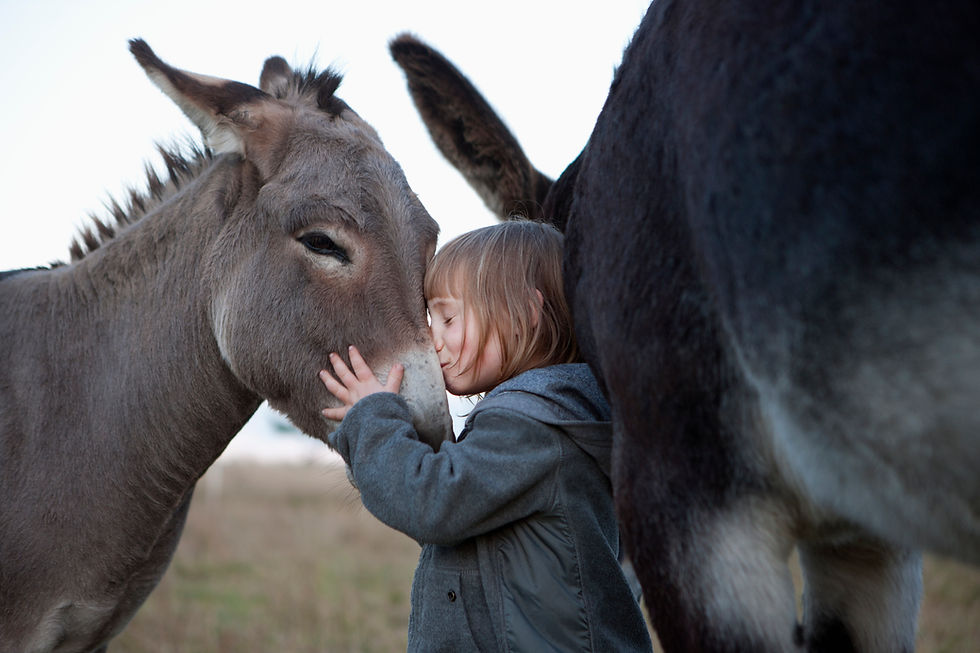Long Ear Facts & Figures
- Aug 26, 2002
- 1 min read
Considering adding a donkey or mule to your family? Learn more about Long Ears.

Breeds & Size In the U.S., donkeys are classified by size. They are measured at the withers (shoulder):
Miniature Mediterranean Donkeys 36” or less
Standard Donkeys Small Standard 36 – 40” Standard 40 – 48” Large Standard 48 – 54” for Jennets 48 – 56” for Jacks
Mammoth Donkeys
54” and up for Jennets
56” and up for Jacks
Temperament Donkeys are gentle, intelligent animals who posses a keen sense of humor. They are herd animals and are happiest with others of their own kind. They can become friends with horses or other farm animals, but should never be kept alone, as they will become very lonely and anxious. Donkeys and mules are often said to be stubborn. This is not true. Donkeys and mules are very smart and cautious and like to be safe. They will often freeze and refuse to move when they sense danger. This is in contrast to the horse, whose first reflex is to flee from danger. Instead of bolting or running away, a donkey or mule will often stop and think about what is scaring them, trying to figure out the safest way to handle the situation.
Lifespan
The average lifespan of the donkey and mules in developed countries is 27 years, and some live into their forties or even more. Sadly, the average lifespan of donkeys and mules in developing countries is 1/3 what it is here. Meager food, scarce or absent veterinary care, and heavy work loads contribute to the shortened lifespan. Many families in developing countries depend on the donkey or mule's work for their livelihood.




Comments